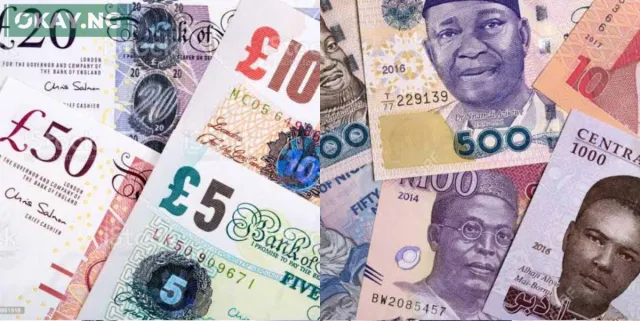In a surprising turn of events, the Nigerian naira witnessed a remarkable appreciation, reaching a peak of N2100 per Great British Pound (GBP) on Monday in the parallel market, commonly known as the black market.
This surge marked a significant increase of 7.62 per cent, with the currency strengthening by N160.00 compared to the previous day’s closing rate of N2,260.
The sudden uptick in the naira’s value aligns with Nigeria’s intensified efforts to combat the persistent depreciation of its currency.
Various measures have been implemented to stabilize the naira, including heightened enforcement actions against informal foreign currency traders on the streets and targeting a prominent cryptocurrency trading platform.
Despite the Central Bank of Nigeria’s (CBN) implementation of policies aimed at bolstering the supply of foreign exchange (forex), the challenges persist, highlighting the complexities involved in managing currency stability amidst economic pressures.
Furthermore, in the unofficial parallel forex market, the naira appreciated to N1,650/$1, marking a 6.06 per cent increase from its previous closing rate of N1,750. Additionally, against the Euro, the naira gained 5.95 per cent, closing at N1850/EUR1 compared to N1960/EUR1 reported the previous day.
In the cryptocurrency market, where forex is traded using stablecoins, the naira settled at N1,637.30/$1 as of 12 pm.
In response to these developments, the National Security Adviser’s Office, under the leadership of Nuhu Ribadu, in collaboration with the CBN, has initiated a joint effort to combat forex speculation and address issues affecting the country’s economic stability.
According to Zakari Mijinyawa, a spokesperson for Ribadu’s office, this partnership will involve coordinated actions with key law enforcement agencies such as the Nigeria Police Force (NPF), the Economic and Financial Crimes Commission (EFCC), the Nigeria Customs Service (NCS), and the Nigeria Financial Intelligence Unit (NFIU).
Mijinyawa emphasized that the activities of speculators, both domestically and internationally, have significantly contributed to the depreciation of the naira, exacerbating inflation and causing economic instability in Nigeria.





